Abstract
An enzyme-linked immunosorbent assay (ELISA) for Clostridium botulinum type A and type B toxins was assessed for diagnostic accuracy in cases of infant botulism. This test was positive in all 22 cases confirmed by the conventional tests, which included the mouse lethality assay and stool culture. Stool specimens from five cases were positive by culture, but the mouse lethality bioassay was either negative or toxicity was judged nonspecific since it could not be neutralized by specific antitoxin. The positive ELISA results in these specimens suggested that this assay may be more reliable, in some cases, than the mouse bioassay. Of the 21 fecal specimens from suspected foodborne cases, 2 contained botulinal toxin demonstrable by the mouse assay and the ELISA. With regard to specificity, 35 fecal specimens from infants and 19 from suspected foodborne cases which were negative in the bioassay for botulinal toxins A and B were also negative in the ELISA. Only two fecal specimens with negative bioassay gave positive ELISA readings, providing a specificity rate of 96%. These results suggest that the ELISA may serve as a useful screening test to detect C. botulinum toxin in clinical specimens.
Full text
PDF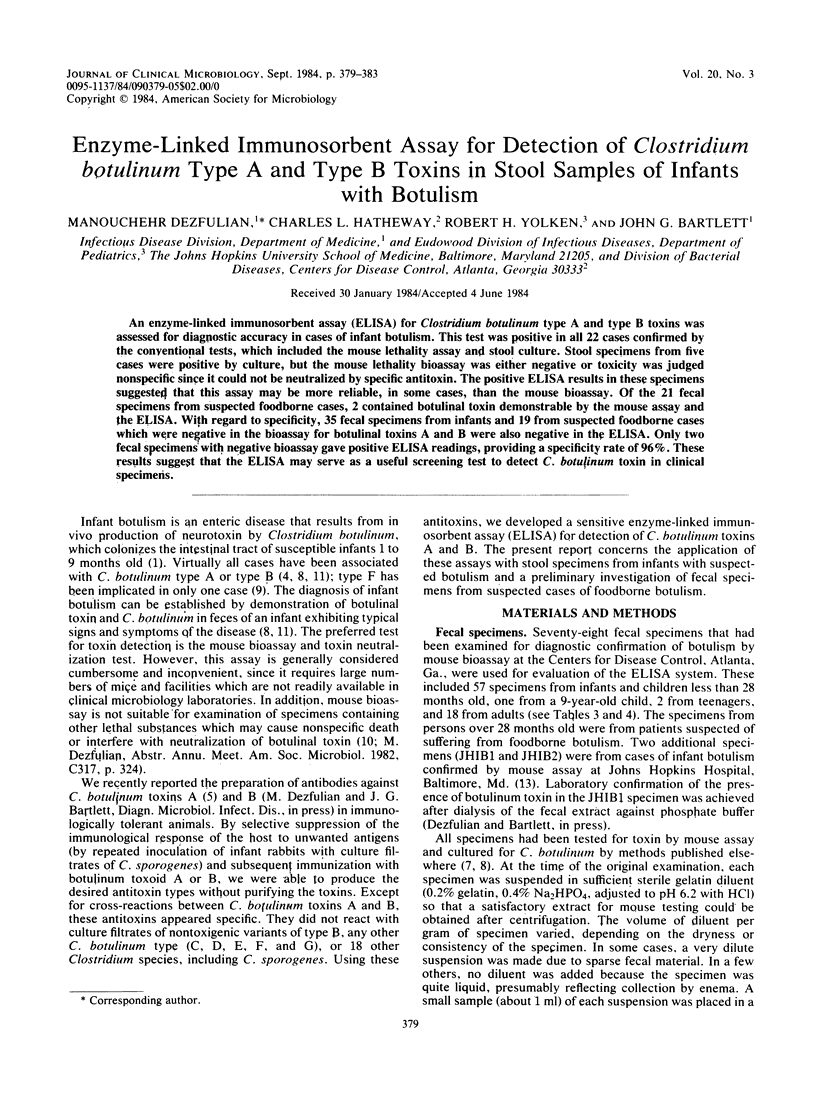
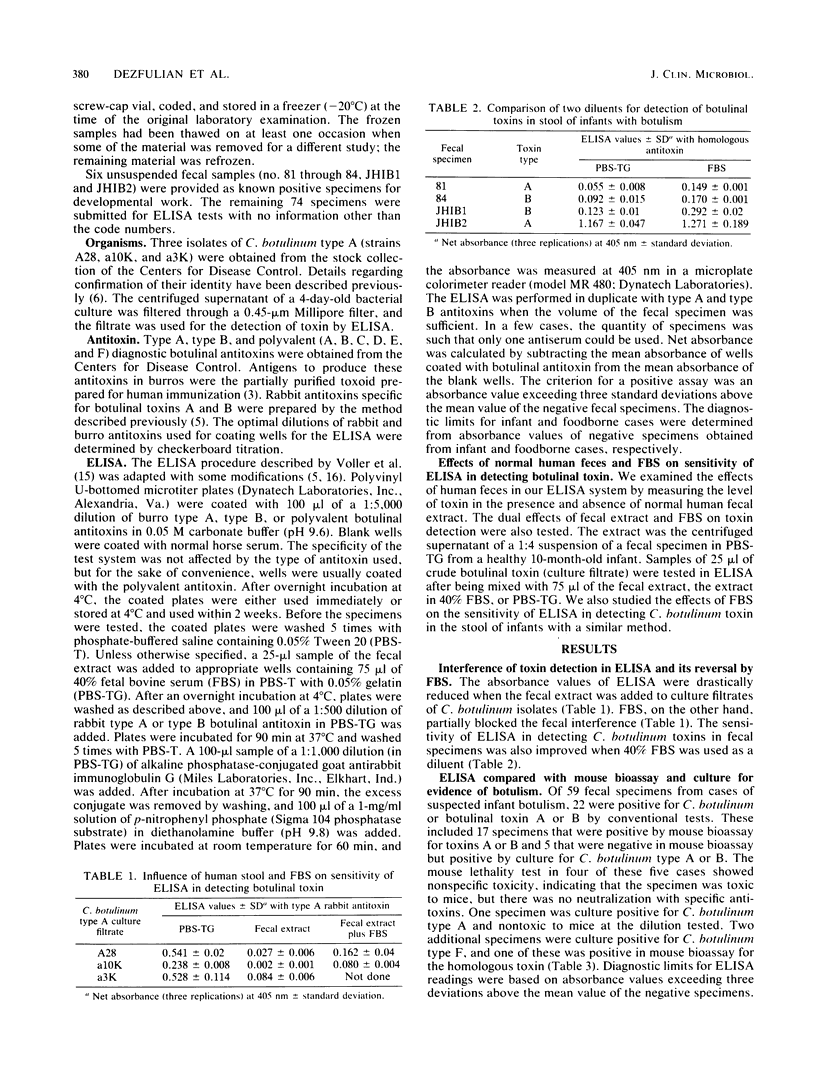
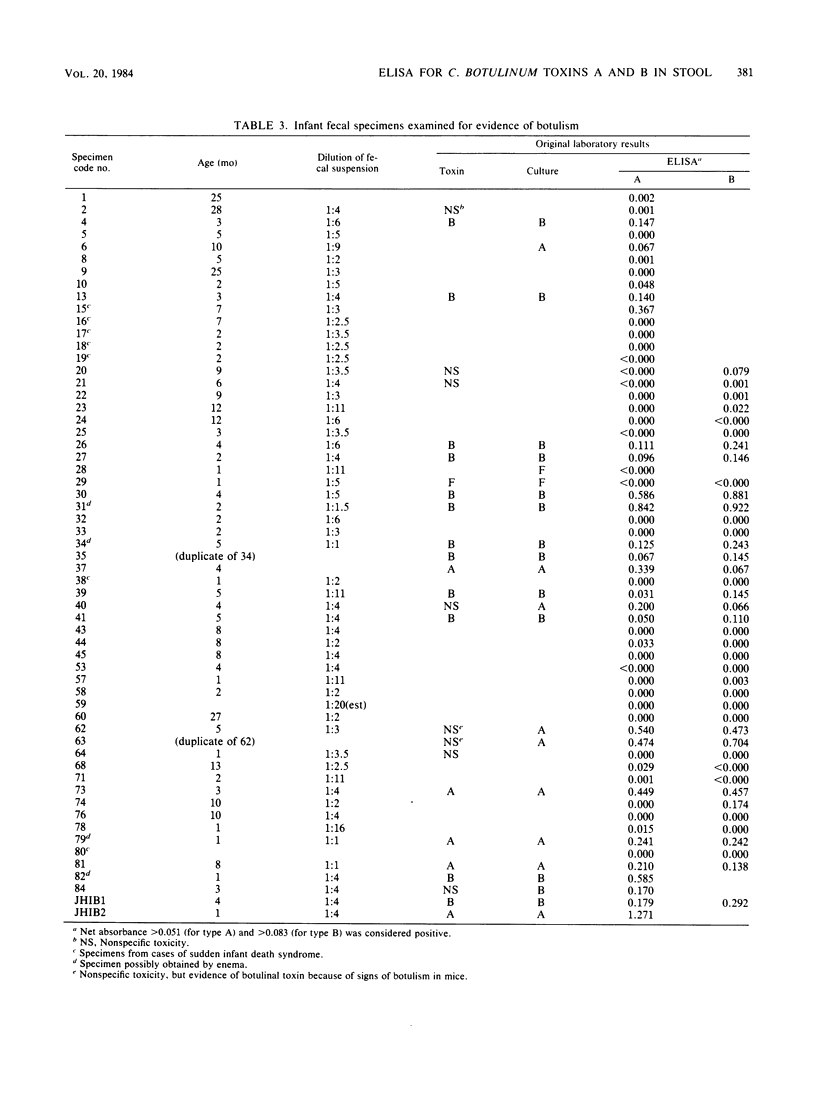
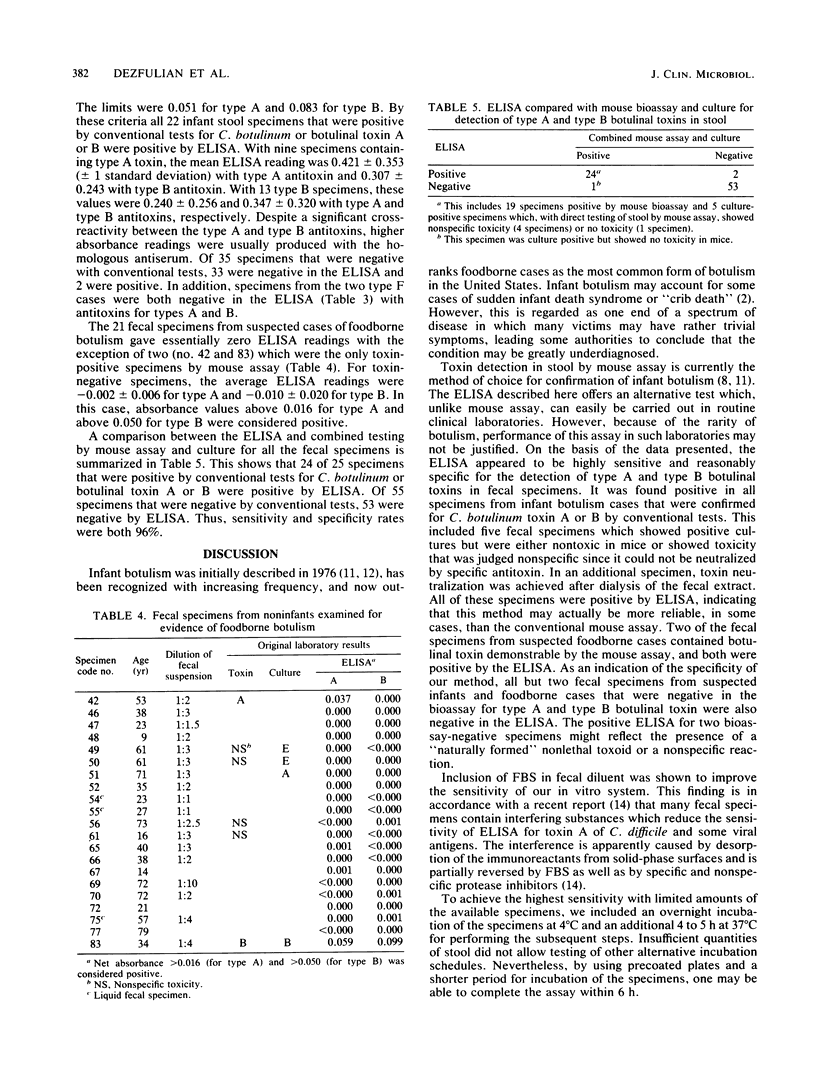
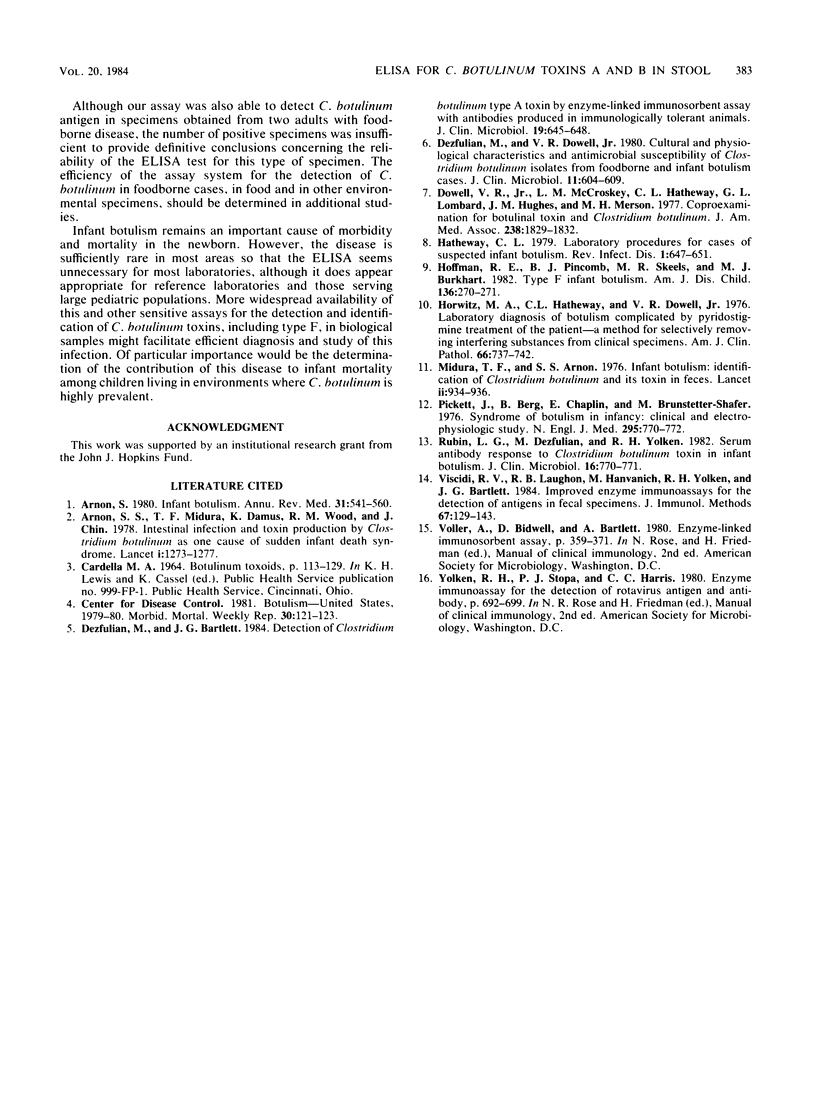
Selected References
These references are in PubMed. This may not be the complete list of references from this article.
- Arnon S. S. Infant botulism. Annu Rev Med. 1980;31:541–560. doi: 10.1146/annurev.me.31.020180.002545. [DOI] [PubMed] [Google Scholar]
- Arnon S. S., Midura T. F., Damus K., Wood R. M., Chin J. Intestinal infection and toxin production by Clostridium botulinum as one cause of sudden infant death syndrome. Lancet. 1978 Jun 17;1(8077):1273–1277. doi: 10.1016/s0140-6736(78)91264-3. [DOI] [PubMed] [Google Scholar]
- Dezfulian M., Bartlett J. G. Detection of Clostridium botulinum type A toxin by enzyme-linked immunosorbent assay with antibodies produced in immunologically tolerant animals. J Clin Microbiol. 1984 May;19(5):645–648. doi: 10.1128/jcm.19.5.645-648.1984. [DOI] [PMC free article] [PubMed] [Google Scholar]
- Dezfulian M., Dowell V. R., Jr Cultural and physiological characteristics and antimicrobial susceptibility of Clostridium botulinum isolates from foodborne and infant botulism cases. J Clin Microbiol. 1980 Jun;11(6):604–609. doi: 10.1128/jcm.11.6.604-609.1980. [DOI] [PMC free article] [PubMed] [Google Scholar]
- Dowell V. R., Jr, McCroskey L. M., Hatheway C. L., Lombard G. L., Hughes J. M., Merson M. H. Coproexamination for botulinal toxin and clostridium botulinum. A new procedure for laboratory diagnosis of botulism. JAMA. 1977 Oct 24;238(17):1829–1832. [PubMed] [Google Scholar]
- Hatheway C. L. Laboratory procedures for cases of suspected infant botulism. Rev Infect Dis. 1979 Jul-Aug;1(4):647–651. doi: 10.1093/clinids/1.4.647. [DOI] [PubMed] [Google Scholar]
- Hoffman R. E., Pincomb B. J., Skeels M. R. Type F infant botulism. Am J Dis Child. 1982 Mar;136(3):270–271. doi: 10.1001/archpedi.1982.03970390084021. [DOI] [PubMed] [Google Scholar]
- Horwitz M. A., Hatheway C. L., Dowell V. R. Laboratory diagnosis of botulism complicated by pyridostigmine treatment of the patient. A method for selectively removing interfering substances from clinical specimens. Am J Clin Pathol. 1976 Oct;66(4):737–742. doi: 10.1093/ajcp/66.4.737. [DOI] [PubMed] [Google Scholar]
- Midura T. F., Arnon S. S. Infant botulism. Identification of Clostridium botulinum and its toxins in faeces. Lancet. 1976 Oct 30;2(7992):934–936. doi: 10.1016/s0140-6736(76)90894-1. [DOI] [PubMed] [Google Scholar]
- Pickett J., Berg B., Chaplin E., Brunstetter-Shafer M. A. Syndrome of botulism in infancy: clinical and electrophysiologic study. N Engl J Med. 1976 Sep 30;295(14):770–772. doi: 10.1056/NEJM197609302951407. [DOI] [PubMed] [Google Scholar]
- Rubin L. G., Dezfulian M., Yolken R. H. Serum antibody response to Clostridium botulinum toxin in infant botulism. J Clin Microbiol. 1982 Oct;16(4):770–771. doi: 10.1128/jcm.16.4.770-771.1982. [DOI] [PMC free article] [PubMed] [Google Scholar]
- Viscidi R., Laughon B. E., Hanvanich M., Bartlett J. G., Yolken R. H. Improved enzyme immunoassays for the detection of antigens in fecal specimens. Investigation and correction of interfering factors. J Immunol Methods. 1984 Feb 24;67(1):129–143. doi: 10.1016/0022-1759(84)90092-9. [DOI] [PubMed] [Google Scholar]


